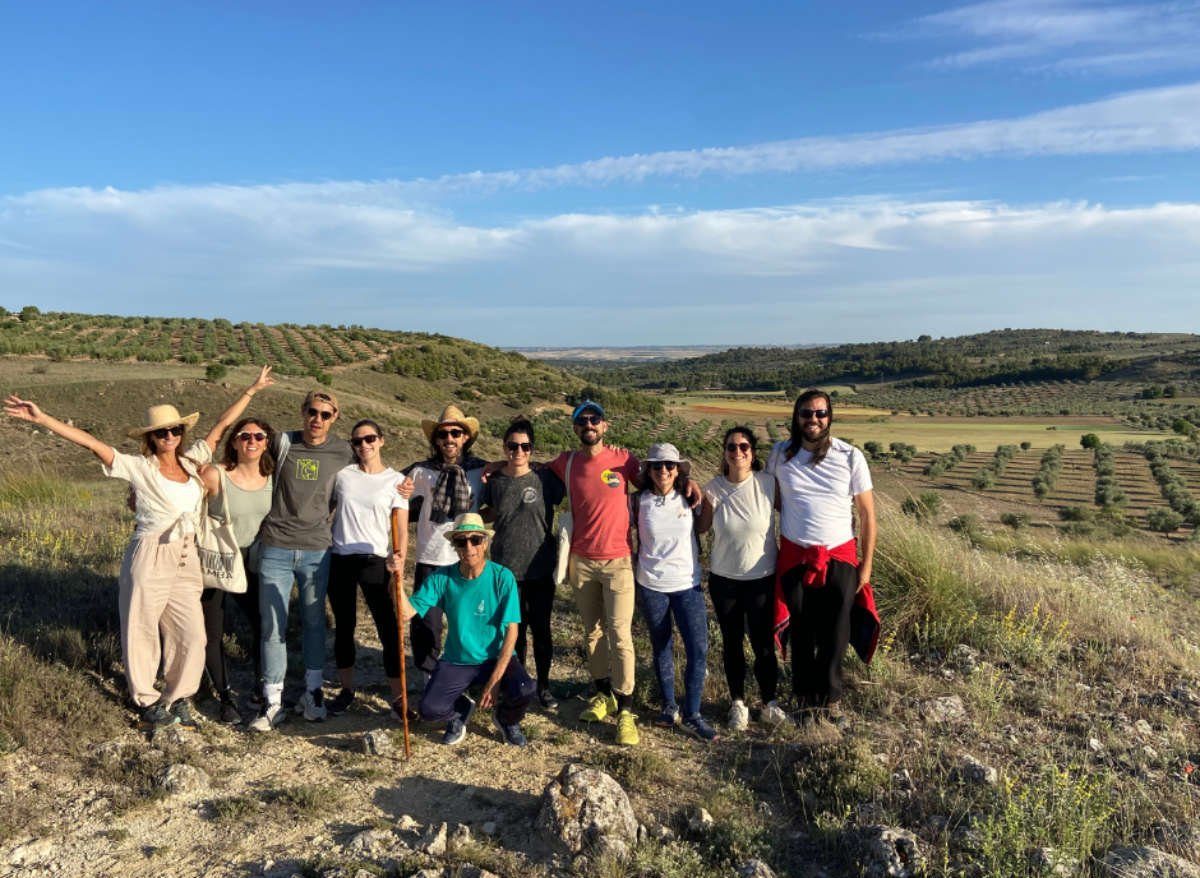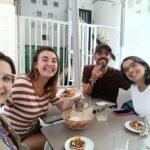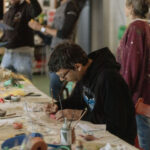From the beginning of humanity, either by desire or necessity, there are millions who have walked from one place to another, looking for more green pastures or more blue horizons. And in that coming and going, today there are even those who are at the crossing between the urban and the rural, as if it were possible to draw a border, forgetting at times that are not separate realities, but are interconnected and influenced mutually. Luckily, it is increasingly common to find people who are attracted to both worlds and who seek to integrate the best of each one into their daily lives. Drip.org
I read the reflection that acts as an entrance of this post blog a few months ago through the Newsletter of dripping.org , a crowdfunding platform that works with projects with a social background.
It made me reflect on that 'invisible line' that we marked between rural and urban, between the 'I am born here' and the 'I feel from here', in short, between a reality that we 'have' we have built 'to' separate concepts' that have always United.
In a personal newsletter that I wrote recently: when did we disconnect from nature? He took as an example the words that Victoria Torres shared through our documentary : ' We talked about the environment as if we were not part of it' , when the environment is everything, in the rural and in urban.
Trying to separate the rural from the urban, only impoverishes as a species, details of the natural and takes away that interconnection that enriches us and that makes us understand the natural cycles much better, what we eat and where much of our resources come from .
These reflections between the urban and the rural, also take me to the title of this blog, is it where it is born or where is you going from? And this question is what I will try to answer, in part, and the one that I ask you, yes, you, in order to help me answer it.
Are we going there?
Birth vs. inhabit
Whether you are from a rural area, as if you have always lived in the city, it is very likely that you know any of these two cases:
-
People who have moved from a town (or rural environment) to a city.
-
People who have moved from a city (of different sizes) to a villages or a rural environment
The reasons that condition both points can be very varied, but they are generally linked to work opportunities, a change of life, health or love (yes, love has led more people to a destination than all cars, trains , ships and airplanes together)
But the important thing within this reflection is not to deepen the reasons that make someone go from the city to the 'field', or vice versa (perhaps that is something we investigate later, but if you want, you can see some of our Webinar how rural in female: entrepreneurs who have op rural.
One of the issues that usually arise provided we organize a panel about the rural one, or when we participate in an interview, is how do people who move there usually receive in rural environments? And it is clear that there are examples for everything.
Since we started with remote villages in 2021, we have known fantastic stories, projects such as Apadrina an olive tree are getting an incredible reactivation of the rural one, even getting many people not go to Oliete. Other projects such as Almanatura, collaborate to identify and promote rural entrepreneurs who are throughout the Spanish territory, and even have initiatives of 'Rural Erasmus' that allow university students to live a season to the field while studying.
To all this is added a 'little' exodus that arose after the pandemic, where many people who telework, went to the rural environment looking for more tranquility and a more slow life environment.
On the other side of the balance (and going a little to the extreme) we have cases like the one reflected in the movie 'As Bestas', where perhaps that 'less friendly' face of the rural one is seen, as well as the reality of many people that inhabit it.
In the middle, which is where almost everything that works, is that debate, or approach, to be born versus the rural.
Ok, now you will tell me and? So much roll and you have not said anything about that difference between birth or pacer, and the truth is that the answer I am going to give you, it will not contribute much, but I will try next.
How do we approach it?
The approach is not simple, but I will leave a few arguments that I think should meet both those born, and those who agree in the rural one:
Understand the environment above all
When we go to rural, either to live or to do some kind of experience, the first thing we must do is understand the environment above all. It is clear, and it is not the first time I say, that many of these territories should have minimal essential services, but on the other hand, we have to understand the reality of where we are, and even the 'isolation' that may suppose Living in the rural one, which a priori can be perceived as a disadvantage, can be the greatest advantage of all.
No 'urbanize' the rural
Precisely the good that this environment has is its link with nature, with its cycles, with its way of living. It is curious like when you go to these environments and immerse yourself at all (although at first it costs a little) notes like your body adapts in a completely natural way to the movements of the sun, to tranquility when doing things or ATTENDING TO NATURE. I said it at the beginning, we are part of the environment that we talked about so much and nothing governs that environment better than the cycles of nature.
Know the idiosyncrasy of the place
This is a matter of community. Making pacer somewhere, it is essential to know the idiosyncrasy of the site, or at least, to know what it is like to live in the rural one (this is one of the reasons why we make experiences in rural environment, it is not the main one, but many people They have told us that it has served as a good approach to it)
Going to live in a town, involves taking the trouble to know how it works, to integrate into it and see if it really is 'you' place to live. The difference between or not, can make your quality of life there better or worse.
Be open to know those who come
Not everything was going to be only for the 'foreign' that goes, from the Rural we must also value and row to meet those people who are interested in inhabiting it. Mutual respect, as anywhere, is the cornerstone to generate good relationships.
Generate exchange networks
This is perhaps another of the most important points, while complicated. I think, and this is a personal opinion, that one of the most beautiful things I've seen in all this is the relationship between people, connections between rural entrepreneurs and remote workers when we do our experiences.
Well, I think, these are the links that should be generated (with their time and with their form) within the rural environments, that union between the people who were born there and those who have made the decision to move there (or of Back from the urban environment) is probably the one that generates greater wealth and knowledge exchange.
So is where you are born or where do you pay?
Well, after almost 1400 words, I still have no definitive answer for it. What I am clear is that, whether you have been born there, and if you have decided to move, what you can do best is to adapt, be open to improve and keep in mind what are the challenges and opportunities in the territory.
And you? (Yes, you thought you were going to get rid) What do you think?






